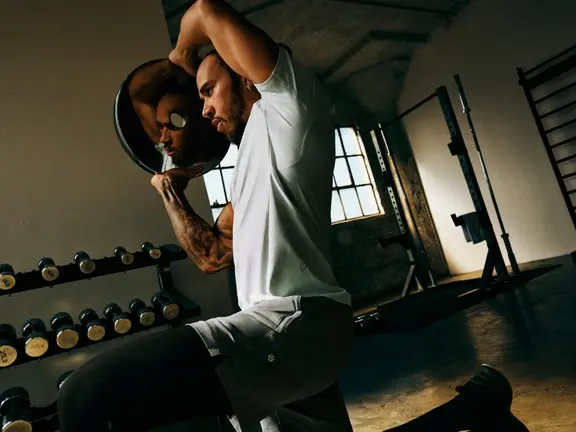
Published:
Readtime: 5 min
Every product is carefully selected by our editors and experts. If you buy from a link, we may earn a commission. Learn more. For more information on how we test products, click here.
We all go through times when we feel self-conscious. It’s as though you’re on stage, and the audience is examining your every step. Logically, you know that everyone isn’t watching you (unless you’re on stage), but that’s how you feel. When we are self-conscious, we often feel ashamed, shy or embarrassed. It might be in particular social settings, such as a public speaking event, on a first date, or while telling a really bad joke. They can all be places that evoke the awful feelings of self-consciousness.
Being self-conscious can limit your ability to enjoy the moment and express yourself fully. It takes you out of your own personal experiences and into the head of someone else. We are trying to think of what someone else might be thinking, trust me, that’s a hard mountain to climb!
A word of advice, stop being so self-conscious! Most people are doing what you are doing right now, paying attention to themselves and how they see themselves around other people. Nobody is paying attention to you, the way you think they are.
So your out, you look around and see people who appear to have all the self-confidence in the world, while you are silently suffering from self-doubt. Well, guess what? Those very people you envy are probably looking at you in a similar way, too busy hiding their own doubts and wishing they had it all together.
Self-consciousness is a self-inflicted state of mind, one where you think you don’t measure up to the people around you and that all eyes are constantly on you but honestly, how much truth is in that?
The way to beat self-consciousness is to learn how to control those paranoid, over-shooting negative thoughts and get confident.
Here are 5 strategies to help you beat the dreaded self-conscious feelings that will pop up the next time you step out of your comfort zone.
1. Get out of your head and stay out.
Getting out of your head is an INCREDIBLY important skill that will transform every part of your interactions with the world. This is where the negative thoughts and feelings live!
I know, this sounds easier said than done. But if you really want to get over your self-consciousness, you need to practice being ok with your negative feelings. This doesn’t mean you agree with them, it just means that you accept that you are going to have negative thoughts pop up every now and then. It doesn’t mean they are true, it’s just a passing thought.
Take note how I didn’t say pretend those negative thoughts don’t exist. We all have our battles with self-doubt and find things to nit-pick; so pretending that they won’t pop up is just a waste of energy. Instead, acknowledge that they’re there, but refuse to agree with them.
2. Know your limits.
Interestingly, knowing what you can’t do is just as important as knowing what you can do. I remember as a young nervous psychologist, considerable hesitation came from me thinking I needed to be able to work with and fix every one of their psychological problems. Over time, I started to work out which people I work best with and which people I needed to refer away. This was so liberating! I knew my limits and I only worked with people I was well equipped for.
When you bite off more than you can chew, or pretend you know something that you don’t it affects your confidence and puts you in a place of self-doubt and self-consciousness.
Be yourself!
3. People are just people.
When we feel inadequate it’s often because we see others as “more than” and ourselves as “less than” by comparison. But as soon as you get to know someone beyond face value or public persona, you quickly discover they have all the hallmark struggles that most humans do. When you get better at seeing this, you will get better at letting go of comparison and start seeing people as people. With this will come relief and you will quickly build social confidence.
4. Accept Yourself, Your Fantastic Faults And All
One of the reasons we feel self-conscious is because we feel like our “faults” make us lack something special, make us different or not perfect enough. No one is perfect and everybody has their own faults, but if you learn to accept yourself entirely, you begin to build your self-worth and spend less time feeling self-conscious.
5. Let’s get Real, No One’s Paying Attention
While you are worried about your stuff, everyone else is so tangled up with their own thoughts, worries, struggles and their own confidence that they have little time to dwell over (and memorize) any reckless bloopers you might have displayed. The “spotlight affect” has most of us assume we are getting double the attention we actually are.
So as you start to build your confidence and get better at letting your self-conscious thoughts float away, know that you will also experience some positive perks to this new found way of being. You will experience better conversations (because you are actually listening rather than listening to what you head has to say, or worrying about what they might be thinking). You will be more self-aware (you now have the means to stop the self-talk rather than put on a show to mask your negative feelings). Most importantly, you will start to develop that natural strong square shouldered posture you inherit when your confidence grows.
Brigitte Zonta is a coaching psychologist and relationship expert based in Sydney. With over ten years experience both nationally and internationally, Brigitte offers her clients the opportunity to consult one on one in Sydney, by phone or online for both national and international clients. You can contact Brigitte at [email protected] or visit her at www.brigittezonta.com and Facebook @brigittezonta1.





























Comments
We love hearing from you. or to leave a comment.